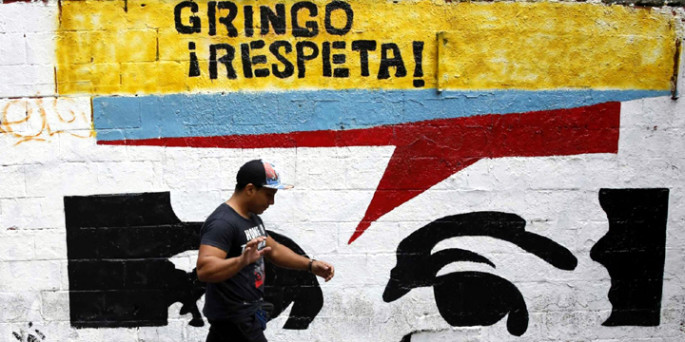
The mysteries of Obama’s policy toward Venezuela
Much bewilderment has been caused by the U.S. government’s decision to declare Venezuela “an extraordinary threat to the national security of the United States” and to impose sanctions on several functionaries from that country while, at the same time, it makes prodigious efforts to reestablish diplomatic relations with Cuba, its historical adversary in the region.
It even appeared that one of the objectives of the United States policy toward Cuba was to save the Summit of the Americas, set for Panama next April, an objective threatened by the unanimous rejection of the other countries to the island’s exclusion.
Once that obstacle were cleared, Obama perhaps hoped to strut through the conference hall, not letting some reproaches mar an image much in need of repair, which the new policy toward Cuba was giving him.
However, all that went downhill when the United States dropped the “bomb” of the alleged Venezuelan threat, and it seems that no one can rightly explain the reasons. Not even the very U.S. government, which has only said that it’s a “legal formality” to stress its concerns regarding the internal situation in that country. According to them, it’s not worthwhile to exaggerate, because 30 other countries are in the same situation.
It is difficult for any Latin American and Caribbean country to accept the meddlesome terms of the U.S. statement against Venezuela. That’s what most governments and political movements in the region have said. Even the most tepid ones have opted to remain silent, but no one has dared to support it.
Regional institutions such as UNASUR, ALBA and CARICOM have voiced their condemnation of President Obama’s executive order and proposed a dialogue between the parties, a solution that Venezuela accepts as good but that the U.S. has not deigned to comment upon.
Not even much of the Venezuelan right has been able to support that statement and the corresponding sanctions. They even complain that, because of it, plans have been aborted that needed discretion on the part of the U.S., contributing to strengthen the credibility of the Venezuelan government before its people and the rest of the world.
Inside U.S. society, a majority of the press, several think tanks and specialists on Latin America have deemed the president’s executive order to be counterproductive, at the very least. While Obama wanted to show his political enemies that he was strong, instead he underlined the inconsistencies that have characterized his administration. The truth is that not even the new policy toward Cuba needs to attempt that kind of defense.
A sure result is that, whatever the intentions of the U.S. government may be, the agenda of the next Summit of the Americas has already been written and the main topics for discussion will be the end of the threats to Venezuela and the lifting of the blockade against Cuba.
Even assuming that some countries will distance themselves from the majority because of U.S. pressure, the U.S. runs the risk that the crisis may extend to the already questioned operation of the OAS, endangering the very existence of the pan-American system, through which it has articulated its hegemony in the continent.
By all the means in its power, Cuba has made clear its solidarity with Venezuela, as well as its will not to be “seduced or bought” by the United States or abandon its allies. That stance casts doubt onto the possibility of reestablish diplomatic relations with the U.S. before the Summit and at the very least alters the rhythm of the process of negotiation in which Obama has invested so much political capital and has earned considerable support at home and abroad.
The moral is that the implementation of the United States’ policy is conditioned by such diverse and contradictory interests that often it becomes difficult to understand its actions. That explains why failed policies for the nation bring formidable business for some consortiums; the existence of a polarized political body when it should be homogeneous; and the irrationality of a policy that tends to destroy the international order where the U.S. is the dominant power.
In my opinion, we’re looking at a game that the U.S. has lost because of a bad play. All that’s left to the U.S. president is to begin another game in the hope that he will act more sensibly. In any case, he won’t be able to strut in Panama, where he can expect the contempt that he has earned.

